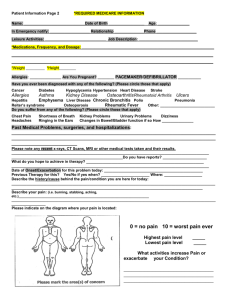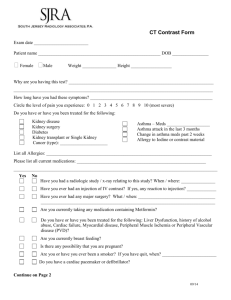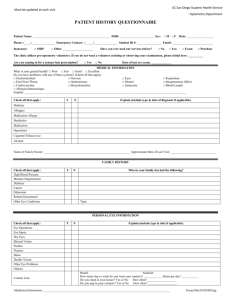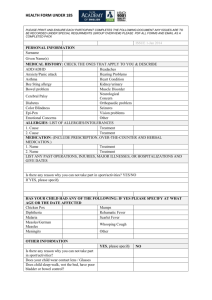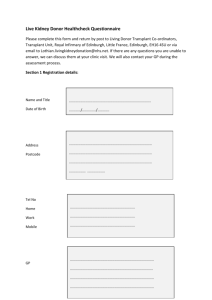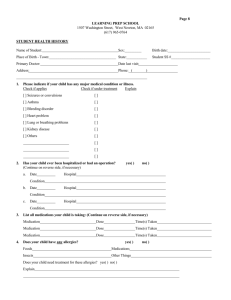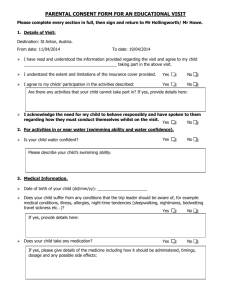Contrast Media Adverse Events
advertisement
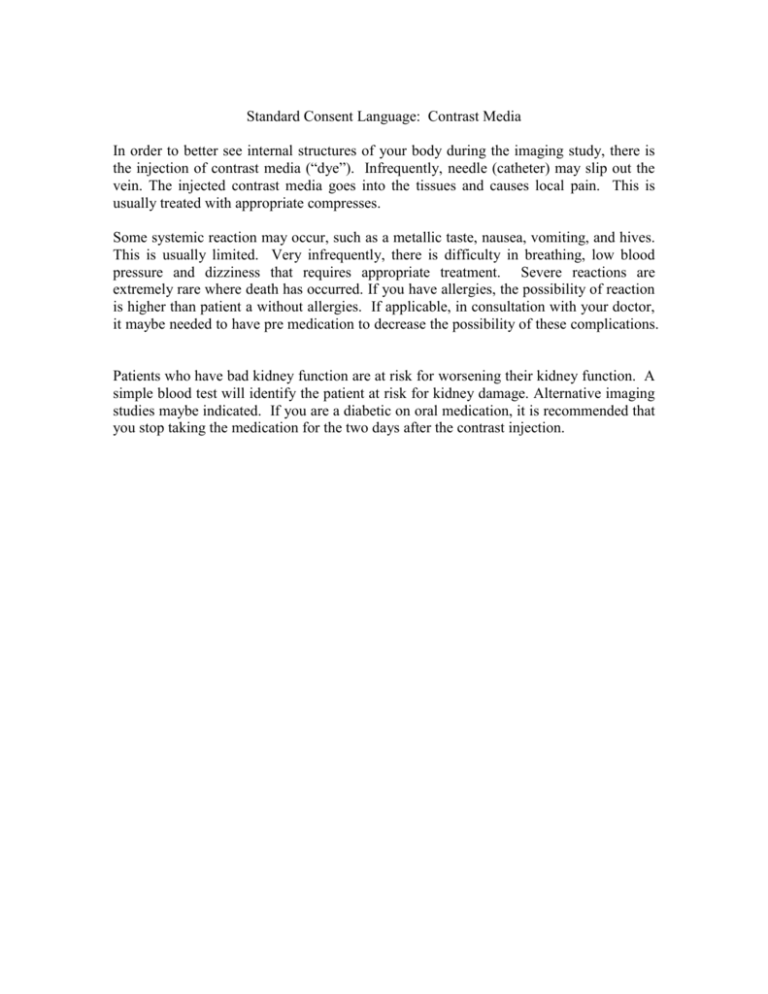
Standard Consent Language: Contrast Media In order to better see internal structures of your body during the imaging study, there is the injection of contrast media (“dye”). Infrequently, needle (catheter) may slip out the vein. The injected contrast media goes into the tissues and causes local pain. This is usually treated with appropriate compresses. Some systemic reaction may occur, such as a metallic taste, nausea, vomiting, and hives. This is usually limited. Very infrequently, there is difficulty in breathing, low blood pressure and dizziness that requires appropriate treatment. Severe reactions are extremely rare where death has occurred. If you have allergies, the possibility of reaction is higher than patient a without allergies. If applicable, in consultation with your doctor, it maybe needed to have pre medication to decrease the possibility of these complications. Patients who have bad kidney function are at risk for worsening their kidney function. A simple blood test will identify the patient at risk for kidney damage. Alternative imaging studies maybe indicated. If you are a diabetic on oral medication, it is recommended that you stop taking the medication for the two days after the contrast injection.
